Follow the path of four Equator Prize winners travelling to Hollywood for an inspiring gathering of Indigenous creatives and filmmakers
The power of storytelling for promoting the rights of Indigenous peoples
April 27, 2023

The Indigenous Imaginarium is a gathering of Indigenous creatives with Hollywood industry that took place in Los Angeles between February and March 2023.
“If I had to describe the Indigenous Imaginarium in one word, it would be ‘community’.”
– Kynan Tegar, Director and filmmaker from Indigenous Group of Dayak Iban in Sungai Utik Longhouse, a 2019 Equator Prize winner
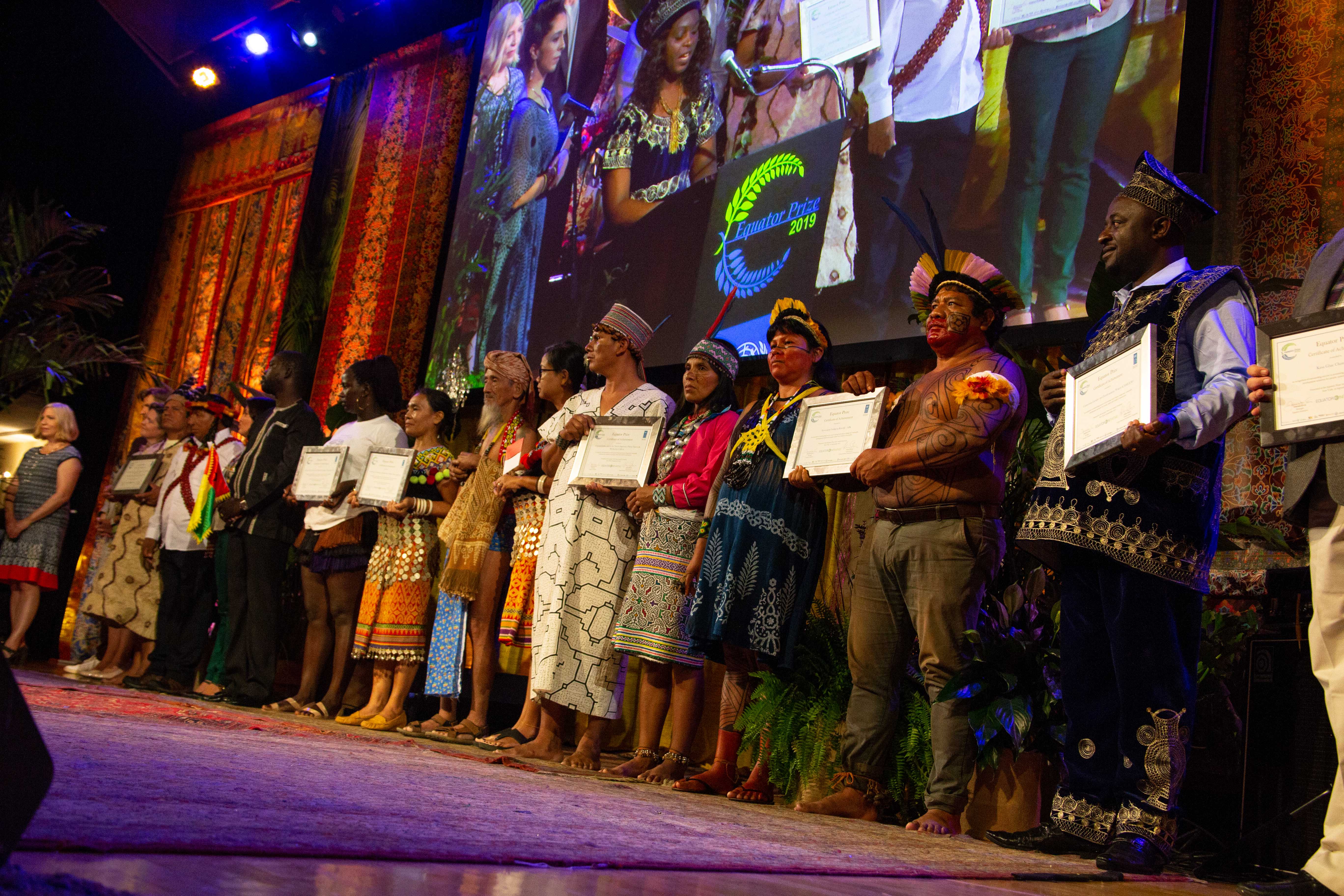
The Equator Initiative brings together the United Nations, governments, civil society, businesses and grassroots organizations to recognize and advance local sustainable development solutions for people, nature and resilient communities.
The lights slowly brightened as the final speaker of the evening ended his pitch. Applause erupted from the audience at the Ray Kurtzman Theater in Los Angeles. On the stage stood over 20 young Indigenous filmmakers from around the world, holding hands as they bowed in front of the star-studded crowd and while camera flashes lit up their smiling faces.
The event marked the end of the Indigenous Imaginarium, a gathering of Indigenous creatives and hands-on workshop to connect Hollywood to the Indigenous storytellers on the frontlines of climate change and activism. All 20 of the Indigenous participants had just spent the previous 10 days diving deep into every aspect of the media industry, from production to pitching and screenwriting to sound engineering. Additionally, they connected with some of the most famous names in Hollywood, including the director James Cameron. The workshop was organized by If Not Us Then Who?, a partner of the UNDP Equator Initiative based in Los Angeles that works to build networks and cultivate inclusive, impact driven storytelling from Indigenous peoples and local communities.
After over a year working with the Indigenous storytellers and creative fellows, If Not Us Then Who? Invited them all to Los Angeles to be part of the first Indigenous Imaginarium, including four young people from Equator Prize-winning communities.
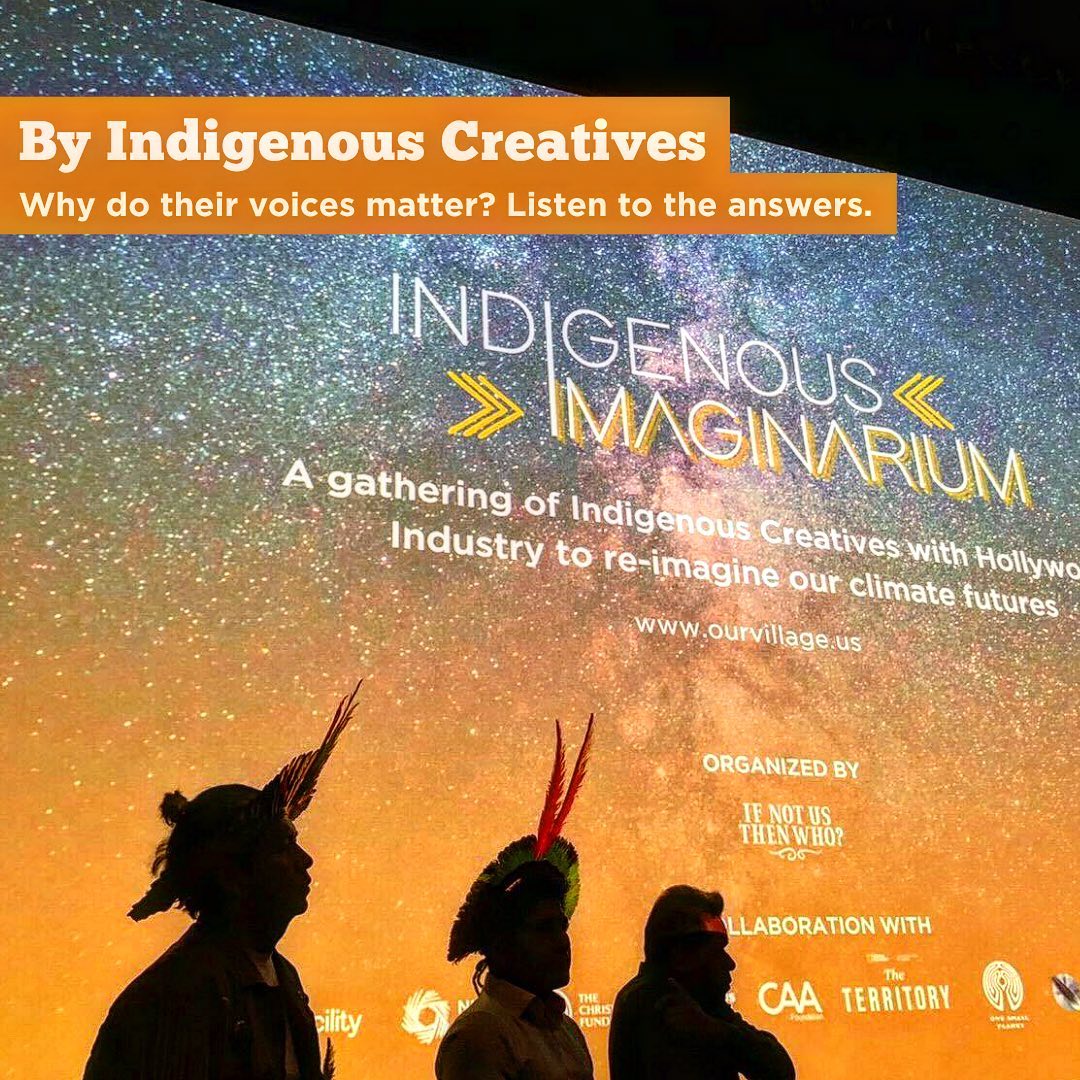
The seven day Hollywood incubator brought 25 international Indigenous filmmakers and creatives to Los Angeles to imagine new climate narratives.
Kynan Tegar is an 18-year-old filmmaker from Kalimantan (Borneo) in Indonesia. Kynan was just 15 years old when his community, the Indigenous Group of Dayak Iban in Sungai Utik Longhouse, was awarded the 2019 Equator Prize. As a kid obsessed with nature documentaries and videography, winning the Equator Prize helped Kynan find a global community of Indigenous peoples telling their stories of Indigenous sovereignty, inspiring him to pursue his dreams in filmmaking.
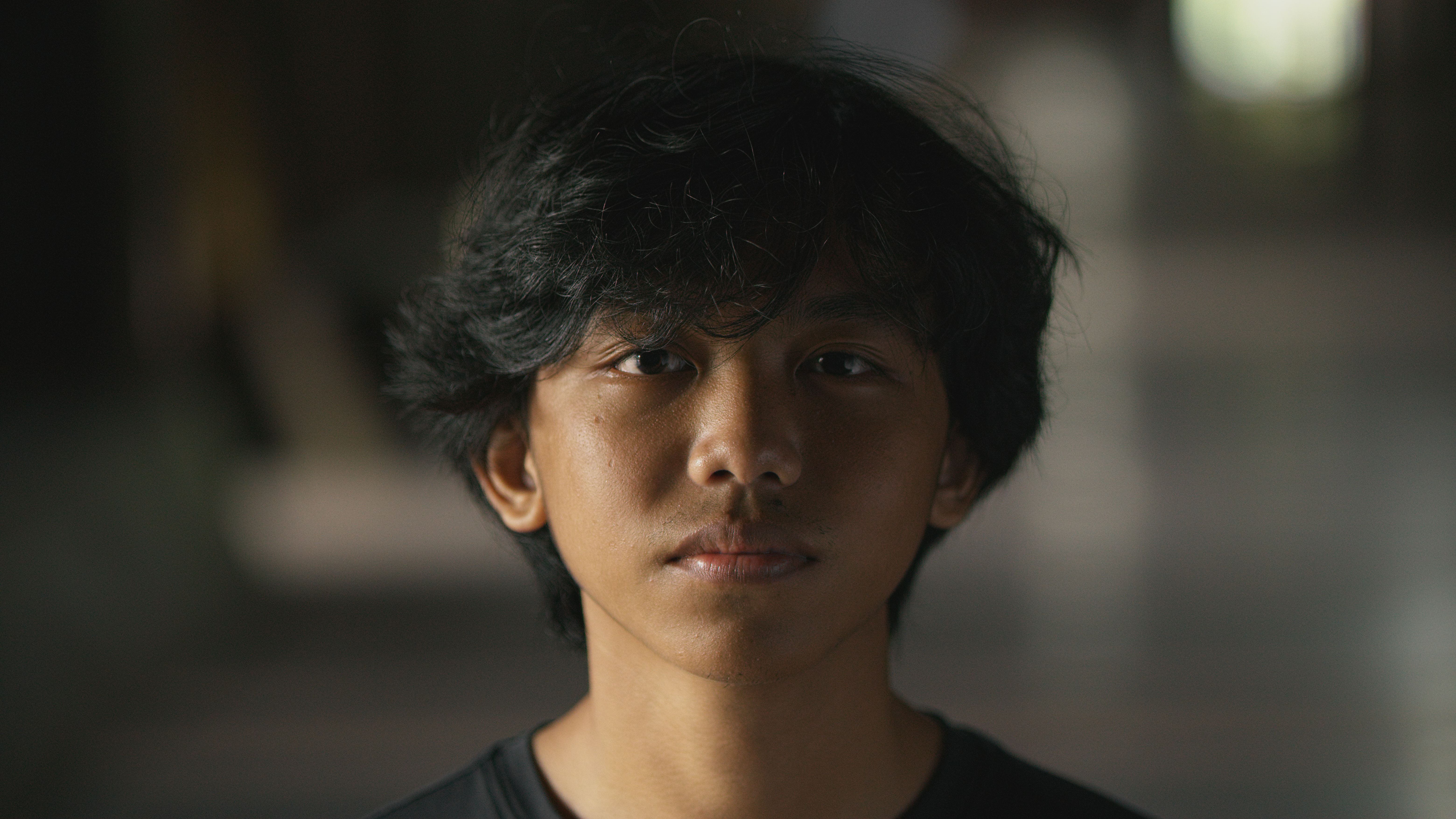
Since finishing formal primary school from home, Kynan has pursued his passion for photography, videography, nature and learning the in-depth culture of the Iban people.
Helena Gualinga is from the 2021 Equator Prize winner Pueblo Orignario Kichwa de Sarayaku in Ecuador. Having started her career as a political activist at just 13 years old, Helena became interested in filmmaking after being the star of a documentary about her and her community titled “Helena from Sarayaku”. Making headlines and speaking at major international events, such as the COP26 climate conference and the World Economic Forum, Helena wanted to transition to work behind the camera and draw attention to turning points in the Amazon rainforest from an Indigenous standpoint.

Helena Gualinga went from activist, to protagonist of the documentary "Helena Sarayaku Manta" to becoming a filmmaker herself. She was recently featured in Vogue magazine in an article on traditional Kichwa Sarayaku face paintings.
Jimmy Piaguaje is from the Siekopai people in the Ecuadorian Amazon, one of the Indigenous peoples that makes up Alianza Ceibo, a network of Indigenous peoples organizing to protect their lands from extractive industries. The activism of Alianza Ceibo, winners of the 2020 Equator Prize, is fueled by storytelling, something Jimmy has played a part in for years. By the time Jimmy attended the Imaginarium, he had already been creating animated documentaries for 10 years, telling the story of his people’s culture and cosmovision.
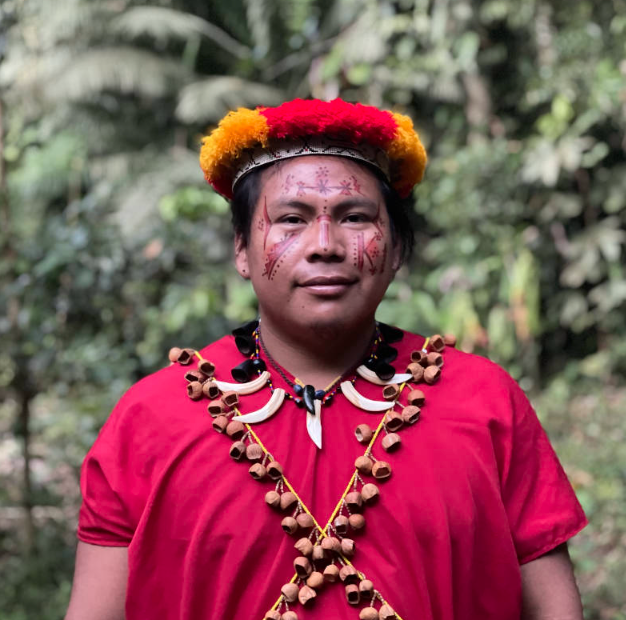
Jimmy is passionate about creating documentary films on the knowledge of medicinal plants and the struggle of his tribe – the Siekopai people.
Renan Suya Kokoyamaratxi is a filmmaker from the Xingu region in the Brazilian state of Mato Grosso. Renan is also from the 2019 Equator Prize winner Associação Indígena Kisêdjê, a community that funds the preservation of their lands through a growing pequi oil business. However, Renan is most passionate about telling the stories of his people, whose land is constantly under threat from the expansion of industrial agriculture, primarily soy monocultures. Renan fiercely seeks to highlight his community’s fight for their territory and the preservation of their stories.
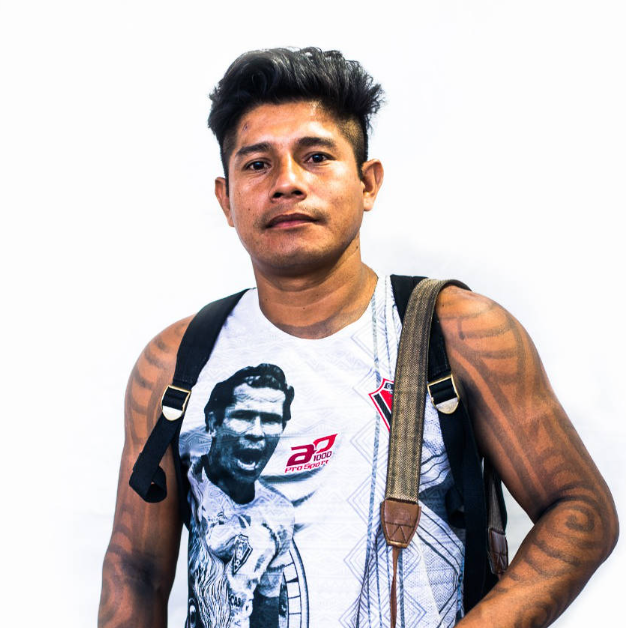
Renan's calling is to defend his land in Brazil from aggressive industrial agricultural expansion by using the power of film.
The four Equator Prize winners joined other Indigenous storytellers in the workshop where they spent hours each day learning from experts about every aspect of the Los Angeles media industry. Helena Gualinga noted that compared to all of the other similar workshops she had attended in the past “there has been a lot less talking and much more time to practice and ask questions”. On top of the filmmaking skills taught during the Imaginarium, all of the participants said that the most valuable lesson they learned was how to pitch themselves as storytellers. In many cases, participants in the Imaginarium were selected to attend because they excelled at telling other peoples’ stories. Now, they had the chance to tell their own.
Kynan reflected on his time at the workshop stating, “Before going to the Imaginarium, I would have told you that I didn’t know what I wanted to achieve with my storytelling. I discovered at the Imaginarium that I wanted to make my first feature film.” He also shared how he had seen the impact of storytelling on his own community. The attention and publicity that came to his community after winning the 2019 Equator Prize prompted the local government in his region to recognize his community’s forest and land, granting them land rights after decades of hard-fought advocacy.
Kynan’s story, the goals of the other Equator Prize winners, and the work of all of the participants in the Indigenous Imaginarium demonstrate that the time is ripe for Indigenous stories to break through and reach a wider audience. The movie “The Territory” was in contention for an Academy Award, and films depicting Indigenous resistance, such as “Avatar: The Way of Water”, are box office sensations. The movie “We are Guardians”, directed by the Indigenous filmmaker Edivan Guajajara and produced by Academy Award winner Fisher Stevens, featuring Indigenous forest guardian Marcal Guajajara and activist Puyr Tembe, will premiere soon in Canada. Kynan’s latest movie, “Poems to the forest”, will be released by Netflix.
All the stories being told by Indigenous peoples spell out the long overdue need to codify and guarantee the rights of Indigenous peoples to realize human rights as they work to avert the worst impacts of climate change. With this momentum, the participants of the Indigenous Imaginarium are ready to be at the cutting edge of an equitable entertainment industry, helping to galvanize a sustainable future.

 Locations
Locations



